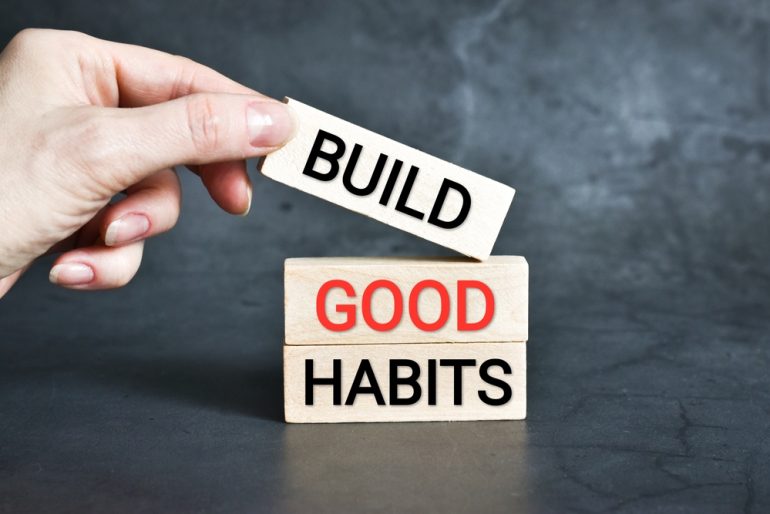Think small, not big, when building positive work habits
In his new book ‘Energize Your Mind’, life coach Gaur Gopal Das suggests steps to handle criticism and learn from it
Criticism from others is one of the ways in which our mental well-being can be disturbed. Whether it is out of a genuine desire to help us or done insensitively, or done because of habit, or done out of malicious intent, criticism has the ability to leave our minds disturbed if we do not know how to deal with it. Gossip and criticism are so hard to stop doing, that it is said one who can stop doing both can grow rapidly in their spirituality. Therefore, we have to have a process on how to handle it appropriately.
Don’t react instantly
Patience is a virtue, and the golden word is ‘wait’. This is not to say that we do not respond. In many cases, we have to do something actively to pacify the mind. However, we have to let the head cool down before we come back with a retort. …when the head is hot, the tongue works faster than the mind. Once words have left our mouths, they become permanent.
We should never make permanent decisions based on temporary emotions. Our emotions will sway like the waves in the ocean, but the consequences of the decision based on those emotions will stay. Only on still water, when the waves have subsided, can there be steady reflection. When the mind is agitated, how can one reflect on what the right course of action should be?
Be open-minded
Could we be at fault in this situation? Are they seeing something that we cannot perceive within us? We should be open to feedback as we may have made a mistake. Our minds are like parachutes, they only function when they are open.
We can learn from anyone, so it is important to listen to what people say as it may be an impetus to help us grow. One of the greatest rivalries in the world was founded on the basis of one party criticizing another. I have never seen an advertisement for these two companies on television, but everyone knows their brands: Ferrari and Lamborghini. However, not many people know of their rivalry.
Ferruccio Lamborghini was born into a family of grape farmers but did not share this passion like the rest of his family. He loved machinery and after serving in the air force during World War II, he began to take old military machines apart and re-purpose them as tractors. Not only was he able to use them on his own farm, he started selling the tractors themselves, which made him wealthy. At that time, a symbol of wealth in Italy was to own a Ferrari. It was the mark of a wealthy man and was a car that Lamborghini owned. Lamborghini had a passion for racing cars and, because he was a mechanic, he knew how to adapt his cars to be perfect for racing. When it came to racing his Ferrari, he noticed it was not smooth.
Enter Enzo Ferrari. At this point in the 1960s, Ferrari was the top-of-the-line luxury sports car in the world. Wanting to help improve Ferrari, Lamborghini approached him about the changes he could make to his cars. However, he was rudely dismissed. His dismissal spurred a rivalry in Lamborghini, and the rest is history. By the early 1960s, Lamborghini had become almost as powerful and wealthy as Ferrari. Of course, that is a simplified version of the story, but it does teach us a lesson: when we are criticized for our work or behaviour, we should be open-minded to see if there is anything we can learn.
Fact-check
We live in a world where misinformation spreads fast and the loudest voice wins. When we are criticized, we should look for an element of truth in the criticism. The first round of introspection should be by ourselves. Was anything the other person saying true? If we are not sure, the second round of introspection should be with friends, family and mentors to see if they think similarly. Those who are closest to us will always tell us the truth about our behaviour in a way we can digest.
Correct yourself
The hardest pill to swallow is that there is an element of truth to what the person criticizing us is saying. They may not be saying it in the most palatable way, but after we have discussed it with our friends, family and mentors and if they agree even partially, we should take responsibility and improve ourselves.
If we find ourselves in this situation, we have to take a moment to digest the criticism and understand that a change has to be made. In the past, I used to think that meant changing overnight, making a large gesture to signal to the person who criticized me that I had taken their advice. However, as I mature, I realize the only way to create substantial change over time is by taking small steps. Small, daily implementations can help us build positive habits. It becomes like compounding interest in a safe stocks and shares portfolio—you may lose a few days and you may gain massively other days, but over time, you grow steadily.

